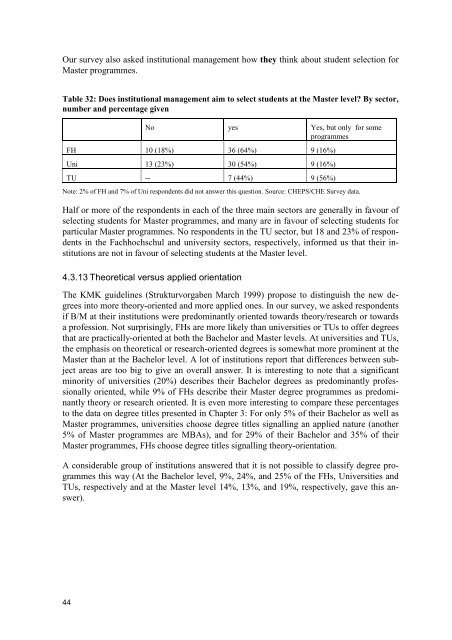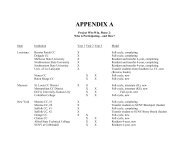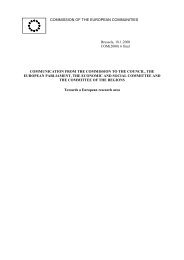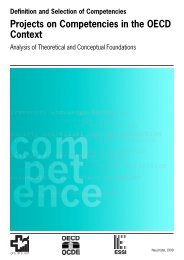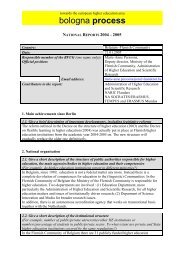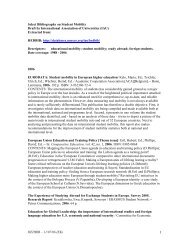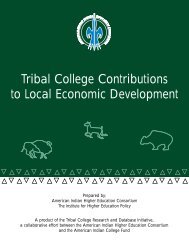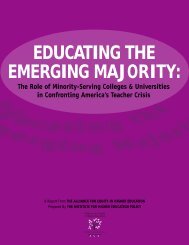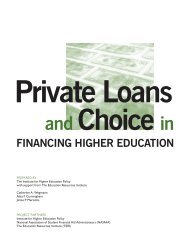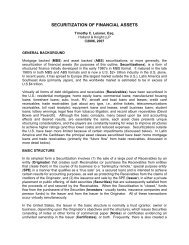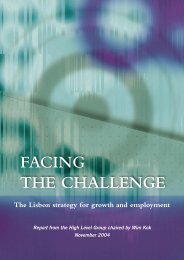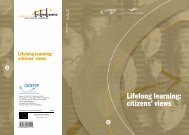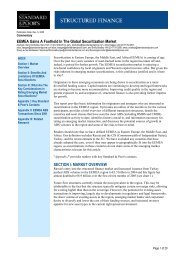and Master Programmes in German Higher Education Institutions
and Master Programmes in German Higher Education Institutions
and Master Programmes in German Higher Education Institutions
- No tags were found...
Create successful ePaper yourself
Turn your PDF publications into a flip-book with our unique Google optimized e-Paper software.
Our survey also asked <strong>in</strong>stitutional management how they th<strong>in</strong>k about student selection for<strong>Master</strong> programmes.Table 32: Does <strong>in</strong>stitutional management aim to select students at the <strong>Master</strong> level? By sector,number <strong>and</strong> percentage givenNo yes Yes, but only for someprogrammesFH 10 (18%) 36 (64%) 9 (16%)Uni 13 (23%) 30 (54%) 9 (16%)TU -- 7 (44%) 9 (56%)Note: 2% of FH <strong>and</strong> 7% of Uni respondents did not answer this question. Source: CHEPS/CHE Survey data.Half or more of the respondents <strong>in</strong> each of the three ma<strong>in</strong> sectors are generally <strong>in</strong> favour ofselect<strong>in</strong>g students for <strong>Master</strong> programmes, <strong>and</strong> many are <strong>in</strong> favour of select<strong>in</strong>g students forparticular <strong>Master</strong> programmes. No respondents <strong>in</strong> the TU sector, but 18 <strong>and</strong> 23% of respondents<strong>in</strong> the Fachhochschul <strong>and</strong> university sectors, respectively, <strong>in</strong>formed us that their <strong>in</strong>stitutionsare not <strong>in</strong> favour of select<strong>in</strong>g students at the <strong>Master</strong> level.4.3.13 Theoretical versus applied orientationThe KMK guidel<strong>in</strong>es (Strukturvorgaben March 1999) propose to dist<strong>in</strong>guish the new degrees<strong>in</strong>to more theory-oriented <strong>and</strong> more applied ones. In our survey, we asked respondentsif B/M at their <strong>in</strong>stitutions were predom<strong>in</strong>antly oriented towards theory/research or towardsa profession. Not surpris<strong>in</strong>gly, FHs are more likely than universities or TUs to offer degreesthat are practically-oriented at both the Bachelor <strong>and</strong> <strong>Master</strong> levels. At universities <strong>and</strong> TUs,the emphasis on theoretical or research-oriented degrees is somewhat more prom<strong>in</strong>ent at the<strong>Master</strong> than at the Bachelor level. A lot of <strong>in</strong>stitutions report that differences between subjectareas are too big to give an overall answer. It is <strong>in</strong>terest<strong>in</strong>g to note that a significantm<strong>in</strong>ority of universities (20%) describes their Bachelor degrees as predom<strong>in</strong>antly professionallyoriented, while 9% of FHs describe their <strong>Master</strong> degree programmes as predom<strong>in</strong>antlytheory or research oriented. It is even more <strong>in</strong>terest<strong>in</strong>g to compare these percentagesto the data on degree titles presented <strong>in</strong> Chapter 3: For only 5% of their Bachelor as well as<strong>Master</strong> programmes, universities choose degree titles signall<strong>in</strong>g an applied nature (another5% of <strong>Master</strong> programmes are MBAs), <strong>and</strong> for 29% of their Bachelor <strong>and</strong> 35% of their<strong>Master</strong> programmes, FHs choose degree titles signall<strong>in</strong>g theory-orientation.A considerable group of <strong>in</strong>stitutions answered that it is not possible to classify degree programmesthis way (At the Bachelor level, 9%, 24%, <strong>and</strong> 25% of the FHs, Universities <strong>and</strong>TUs, respectively <strong>and</strong> at the <strong>Master</strong> level 14%, 13%, <strong>and</strong> 19%, respectively, gave this answer).44


